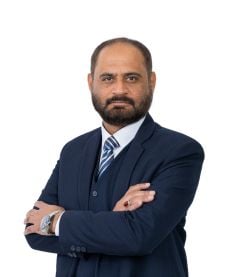
Regulatory Evolution: A New Standard for Assurance
In recent years, regulatory bodies in Saudi Arabia have introduced far-reaching reforms designed to raise audit quality and accountability. The Capital Market Authority (CMA), the Saudi Organisation for Chartered and Professional Accountants (SOCPA), and other oversight authorities are aligning audit practices with international standards while tailoring them to the Kingdom’s economic environment.
Key developments shaping the assurance landscape include:
Mandatory Audit Firm Rotation
To promote independence and reduce long-term familiarity risks, regulatory requirements have introduced stricter rules around audit firm rotation. This encourages a refreshed perspective and helps reinforce auditor objectivity.
Expanded Audit Committee Responsibilities
Corporate governance frameworks have strengthened the role of audit committees. Their oversight now extends to auditor appointment, performance evaluation, and resolution of critical audit matters. This shift enhances the integrity of the audit process and increases board-level engagement. Effective two-way communication between auditor and the audit committee is required.
Increased Regulatory Enforcement
Audit inspections and monitoring activities have become more robust, with clearly defined consequences for deficiencies. This heightened scrutiny drives improvements in quality and strengthens public trust in the financial system. CMA regularly inspects audit firms who are licensed to carry out audit of entities under regulatory supervision of CMA. On the other hand, SOCPA also reviews practicing firms licensed by SOCPA. Both reviews are detailed and cover firm level review and the working paper review. Transparency reports of CMA licensed firms are also published.
Alignment with International Standards
Saudi Arabia continues to progress in aligning its auditing framework with the International Standards on Auditing (ISAs) and IFRS Accounting Standards. This convergence enhances the country’s position as a leading financial hub and ensures consistency with global reporting norms. SOCPA has endorsed International Code of Ethics for Professional Accountants (including International Independence Standards), International Standards on Auditing (ISAs), IFRS Accounting Standards and International Standards on System of Quality Management (SoQM). The firms are required to carry out annual evaluation of their system of quality management.
Integrating Technology into the Audit Process
Technology is playing an increasingly central role in the audit profession. Large and medium firms are using online tools for auditing, data analytics, and artificial intelligence. These tools allow auditors to perform deeper analysis, conduct full population testing, and identify anomalies or risks in near real time.
Digital platforms also improve transparency and collaboration. Real-time dashboards and electronic workflows provide boards and audit committees with enhanced visibility into the audit’s progress, enabling faster and more informed oversight.
The Expansion of Non-Financial Assurance
As expectations around corporate responsibility grow, the scope of assurance is broadening beyond financial statements. There is increasing demand for independent validation in areas such as Environmental, Social and Governance (ESG) reporting, and cybersecurity.
The CMA approved the Guidelines for Issuing Green, Social, Sustainable, and Sustainability-Linked Debt Instruments which are effective from 27 May 2025. Tadawul also issued ESG Disclosure Guidelines (Voluntary Resources). These developments align with global reporting trends and support Saudi Arabia’s commitment to responsible economic development.
Auditors now play an important role in verifying the accuracy and completeness of these non-financial disclosures. This requires multidisciplinary knowledge and the ability to assess not only financial controls but also operational processes, data integrity, and compliance with ESG frameworks.
Elevating Audit Quality in a Changing Environment
Audit quality is a central theme as regulatory expectations continue to evolve. A high-quality audit is defined not only by technical compliance but also by the insight, clarity, and professionalism demonstrated throughout the engagement.
Core elements of audit quality in 2025 include:
Professional Judgment and Objectivity
Maintaining independence and applying a questioning mindset are essential. Auditors must challenge assumptions, assess complex estimates, and remain alert to emerging risks.
Effective Risk Identification
Understanding business risks, including those related to operations, compliance, and external factors, allows for a more focused and meaningful audit approach.
Clear Stakeholder Communication
Timely and transparent dialogue with audit committees, management, and regulators is critical to ensuring expectations are aligned and findings are well understood.
Navigating the Future of Assurance
As the regulatory and business landscape grows more complex, audit functions must adapt. Organisations require assurance partners who understand both the local context and the global standards that underpin modern reporting. This includes the ability to manage regulatory compliance, harness technology, and respond to the expanding scope of disclosures.
For audit committees, boards, and executive leaders, the path forward requires more than compliance, it demands insight, adaptability, and trust. Working with an auditor who is equipped to meet today’s challenges and anticipate tomorrow’s expectations is essential.

